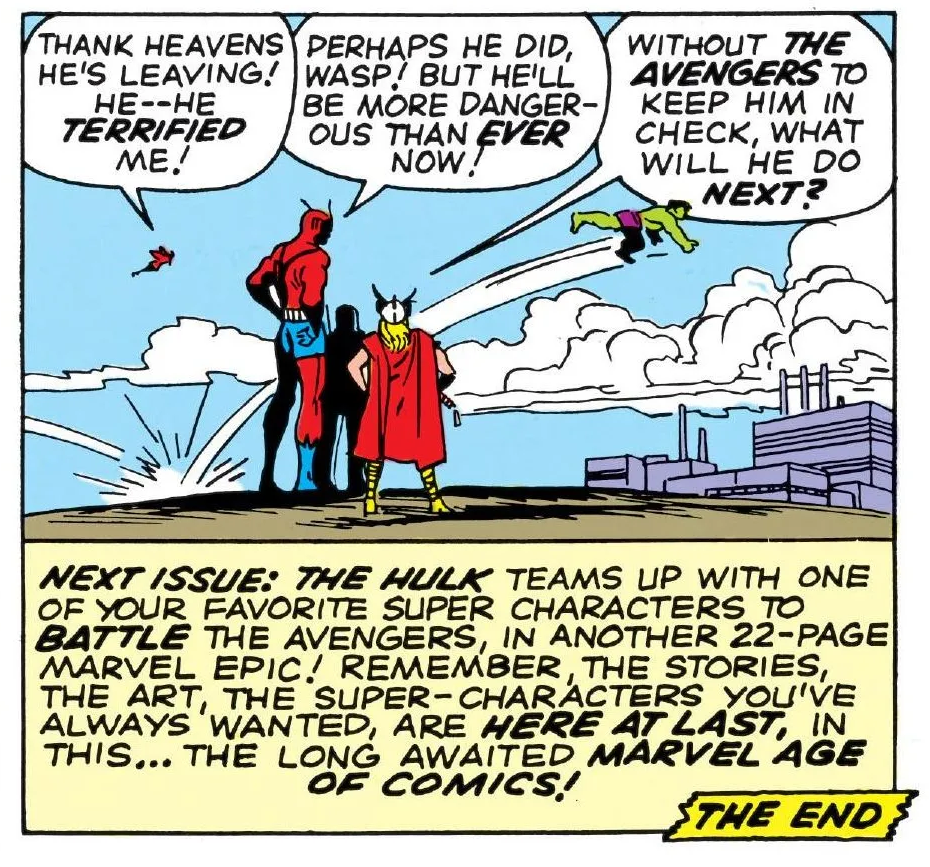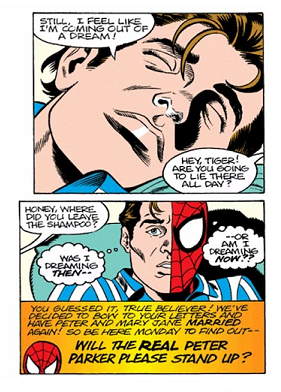That was a really rough landing.
I was going to put this up on BlueSky, specifically the BookSky feed (📚💙), but by the time I got up to eight ‘bleets’ in the thread I thought I’d gone way beyond the hot-take zone that those microblogging sites are intended to be.
Over on BlueSky my point is:
- I loved Briardark right up until then end, when I discovered no resolution was coming.
- I was so frustrated by this I checked the reviews for book two in the series and discovered there was still no resolution – we have to wait for book three (at least).
- I want a good, cosmic horror × wilderness horror story that is a complete story in the mould of Jeff VanderMeer’s Annihilation.
But gosh, do I ever need to expand on that. So here’s the expanded version.
As a rule, I don’t read series. Two reasons:
- I want to experience ALL the interesting, fantastical, terrifying, wondrous worlds authors create and share. Unfortunately, I don’t have time for that as it is; I definitely don’t that if I spend my time reading the roughly six good Dune books and the mountain of bad ones.
- There’s FAR too high a risk that in any given “first in a series” book I won’t get a satisfying, complete story. I like serialised fiction, but I consume it in the form of comic books, episodic podcasts, the modern trend of serialised television – you get the idea. I don’t want a 400 page prologue to the next book in the series.
But I’ve softened my stance on series lately, mostly because more and more of what I tend to read, in particular sci-fi, is being crafted as a series. 😮💨
But I’ve also read some absolute bangers that are “#1 in a series” and haven’t been burned for quite a while. Sure, everyone knows Leviathan Wakes, (you probably know the series name, The Expanse even if you don’t know the book) but I’ve got to mention it. Shout out to C. L. Clark’s The Unbroken, Jeff VanderMeer’s Annihilation, and The Long Way to a Small, Angry Planet by Becky Chambers – just to name a few of my favourites. They all kick off larger, expansive series but each of those have a beginning, a middle and end with a satisfying resolution.
This brings me to Briardark. I had a few things I didn’t love, but it was firmly on the road to my “all-time favourites” list. Then it ended. Without trying to make a funny, it just fell off a cliff. The end came so abruptly I wondered if my eReader had messed up somehow. No resolution to any of the plot lines, no explanation – just a cliffhanger and a mystery box. I was talking to a very dear friend of mine who I know is a huge fan of The Expanse, and I likened the end of Briardark to Leviathan Wakes. Imagine if the latter had ended with Chapter 27. I’ll quote the tail-end of that chapter here for context:
A couple of citizens started screaming. Miller pointed his gun at them and they got quiet.
“Go down a level or two and find someplace to hide,” he said. “Do not cooperate with these men, even though they’re dressed like police. They do not have your best interests at heart. Go.”
The citizens hesitated, then ran. […]
“Okay,” Holden said. “Say, let’s get back to the ship before we bleed to death, right? No more shooting people if we can help it.” His voice sounded calmer than he felt.
Miller Slapped the magazine back into his gun and chambered a round.
“I’m guessing there’s a lot more people need to be shot before this is over,” he said. “But sure. First things first.”
The end!
If you’re anything like me (and, yes, I understand, most people aren’t like me in general, but I think I’m on solid ground on this particular point) you don’t need to know anything else about the story to read that and feel cheated if that is what caps off 300 pages of otherwise very compelling story.
So, faced with this style ending for Briardark, I took action. Yes, it was 1:25am, I was reading in bed, and I had a 7am meeting I needed to make but this couldn’t wait! I went to read reviews of Waywarden, #2 in the series, on GoodReads until I had the information I needed. The sequel ends exactly the same way – a giant cliffhanger. The kind that would’ve made Stan Lee blush when he was writing endcaps at Marvel. So Waywarden is now in my “Will Not Read” list and I have a whole bad feeling about this absolutely fascinating cosmic × wilderness horror setting.


And for any of you who know me well, you know how much cosmic horror as a story element gets my motor running! It’s often handled poorly but the times when it is handled well, it’s amazing! For me, these are the core concepts for cosmic horror: Humanity isn’t just insignificant in the grand scheme of things, humanity isn’t even able to perceive how insignificant we are and the horror comes from the mounting dread as the ignorance is slowly stripped away from the characters – and from the audience.
That’s kind of nebulous, let me come up with some concrete examples of cosmic horror stories I absolutely adore.
First is the aforementioned Annihilation by Jeff VanderMeer. Taken on its own, this story steadfastly refuses to provide conclusive answers about what is happening in Area X, but we can see the effects, and they are chilling. Without spoiling too much, inside “the shimmer” (the name for Area X used in the movie adaptation) the line between ‘plant’ and ‘animal’ and ‘human’ is drawn on loose sand. While there does seem to be an order to where those elements commingle, the nature of that order is completely incomprehensible to our characters – and to us, the readers. As The Biologist says at one point in the book, “What can you do when your five senses are not enough?”
An utterly CHILLING short story, Teeth by Matt Cardin nails it as well. If you can’t find it to read or if you just like fiction podcasts – and you find yourself plagued by sleeping too easily – you can listen to the whole thing on the PseudoPod podcast. You want episode 721 and episode 722.
I recently found myself discussing the Danny Boyle film, Sunshine, with some people the other day and I think it fits perfectly in here as well. Tarantino famously tears into it for the “creative nose dive” of the third act, and if we compare the number of successful movies he’s made to the number I’ve made, I guess he’s the expert. Regardless, I think this is an absolutely awful take that fundamentally misunderstands the setup.
The first two acts move along at an almost contemplative pace, focusing on character development and world-building. That’s all great – I love it in the same way I love the first act of Alien. It’s 25 minutes in before we even seen the Space Jockey’s ship, it’s almost 35 minutes before Kane is attacked, almost half the movie is over before the infamous chestburster scene, and there’s only 40 minutes left of the nearly 2 hour runtime before we get a look at the adult alien. We’ve had plenty of time to get to know these characters, understand their motivations and understand the world they inhabit. In particular, we understand why they are all on The Nostromo and why they really have no choice but to follow the path they do. That’s essentially how Sunshine runs as well.
The third act of Sunshine goes considerably harder than Alien, but my position is that it has to because the ‘why’ of the plot is pretty poopy without taking the turn it does. The average theatre-goer wouldn’t understand just how weak the premise really is – “The sun is going out, we’re going to restart it!” – but Capa’s opening narration even suggests that there’s more going on than the characters understand:
Our sun is dying. Mankind faces extinction. Seven years ago the Icarus project sent a mission to restart the sun but that mission was lost before it reached the star. Sixteen months ago, I, Robert Capa, and a crew of seven left earth frozen in a solar winter. Our payload a stellar bomb with a mass equivalent to Manhattan Island. Our purpose to create a star within a star.
And so, by the time the third act rolls around, this setup and the profound nonsense of “our sun … dying” – 50 years in the future at the time the movie was made – is Chekov’s Gun. It gets paid off by the movie going head first into equal parts horror and insanity, and everything falls into place. For me, at least. And, just like Annihilation, we get a resolution to the story but no firm explanations, because there’s simply no explanation we can truly understand. It’s trying to explain ‘blue’ to a particularly intelligent dog that’s been blind since birth.
I don’t think I need to carry this any further – the horse is long dead now – but I’d feel bad if I didn’t at least mention Event Horizon for movies that absolutely hit the mark for cosmic horror.
So here we are. I’m soured again on book series, I’m going to be very wary of the next one I pick up, and I’m aching for a good, book-length cosmic horror story, preferably set in the wilderness. And when I say “horror”, it doesn’t have to be R-rated or whatever. I am in love with What the Woods Took by Courtney Gould and that’s apparently YA fiction. 🤷 At the same time, I put This Wretched Valley by Jenny Kiefer on my WNF list after the first chapter despite it having glowing reviews and recommendations. I couldn’t connect with the characters or the writing.
I guess I’m back on the hunt.